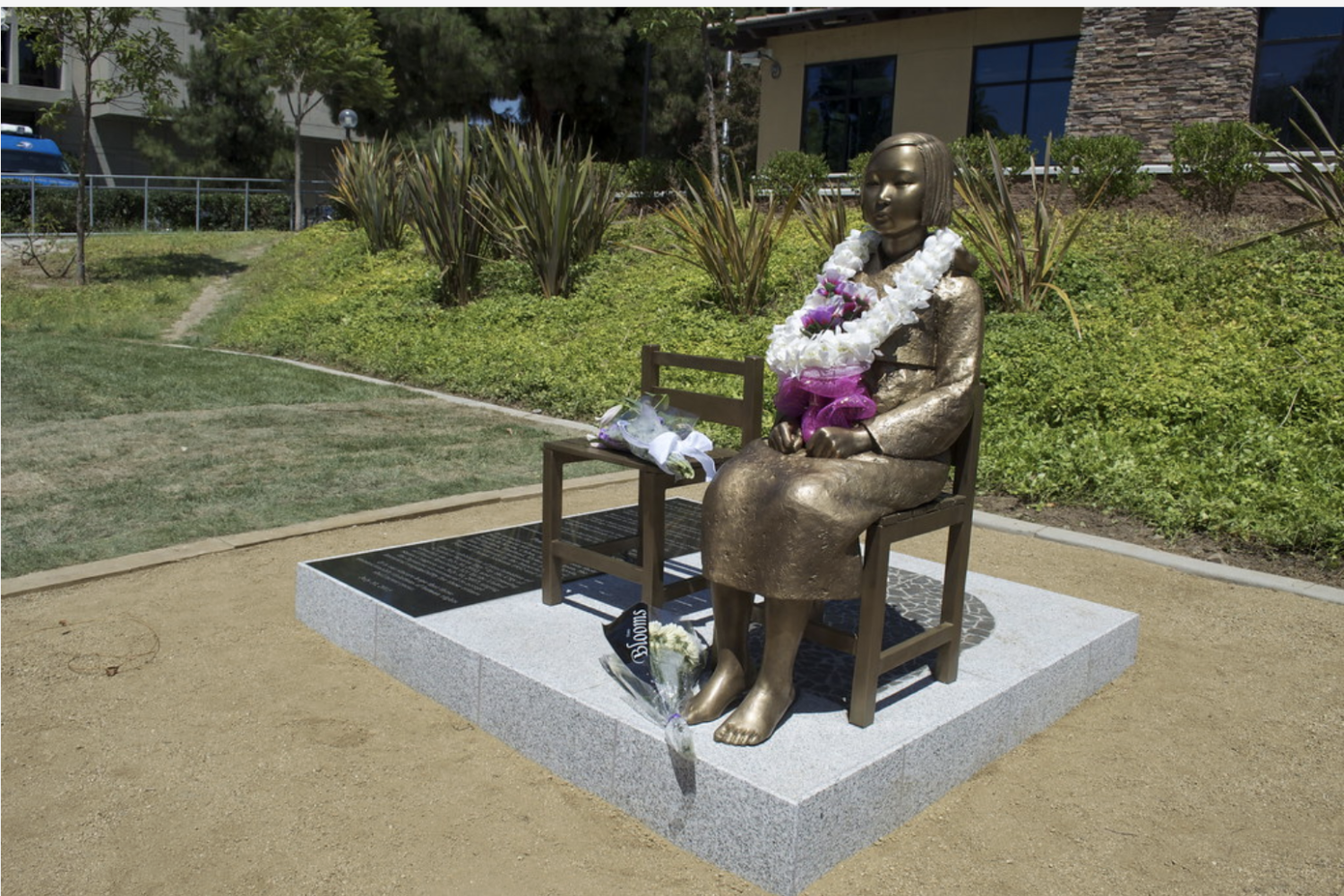A historic atrocity dating from World War II has recently returned to the academic spotlight at Harvard. A paper written by Harvard Law Professor J. Mark Ramseyer claiming that sex slaves coerced by the Imperial Japanese Army were voluntarily contracted workers, triggered uproar in student, scholarly, and political communities.
“Comfort women,” the euphemism for up to 200,000 girls and women forced to work in brothels run by the Japanese military, were from countries and territories occupied by the troops, especially from Korea. For this reason, the relationship between both countries—Japan and South Korea—have been tense concerning this topic for decades. In 2015, much expectation arose when both nations started a negotiation for a public apology; however, there have been no laws enacted to confess Japanese responsibility.
Ramseyer’s paper, “Contracting for Sex in the Pacific War,” published by the International Review of Law and Economics, ignites again this tragic international discussion. In his essay, Ramseyer argues that comfort women worked for wartime brothels, called “comfort stations,” through a credible contractual dynamic. In a follow up editorial for Japan Forward, Ramseyer also stated that the “Japanese army did not dragoon Korean women to work in its brothels. It did not use Korean women as sex slaves.” He furthered that “claims to the contrary are simply — factually — false.”
As expected, students reacted with profound indignation. The Korean Association of Harvard Law School released a statement, criticizing Ramseyer’s positions as “factually inaccurate and misleading” and “without any convincing evidence.” Moreover, the Harvard College Korean International Student Association published their own statement which concludes that Ramseyer’s revisionist assertion “potentially undermines the universal values of humanity.” KISA also launched a petition which, as of March 3, has already received more than 400 students’ signatures. In short, the petition requests Ramseyer’s formal apology, an official speech from Harvard University President Larry Bacow and Law School Dean John F. Manning about the arguments raised by Ramseyer, and a formal statement from the publisher as well as their “consideration of withdrawing the article for its serious violations of academic principles.”
Joseph L. Choe, a third year student at Harvard Law School and former president of the Harvard Political Review, was one of many students who criticized Ramseyer’s take. He co-wrote an op-ed for The Harvard Crimson condemning Ramseyer’s article, reframing the professor’s paper into the wider context of Japanese revisionist movements. In an interview with HPR, he stated that there is a lot of privilege built in Ramseyer’s position as a white male Harvard Law Professor. Accordingly, by speaking on “historical untruths,” Ramseyer “lends a lot of credibility to those historical revisionist stands.” Choe regrets that Ramseyer uses such a credible platform, which is expected to disseminate the truth and teach accurate history, to actually perpetuate the silence of victims of sexual slavery.
Condemnation of Ramseyer’s arguments have also been abundant among the academic community. One such scholar is Tessa Morris Suzuki, Professor Emerita in Japanese History from Australian National University. In a statement, she pointed out many flaws contained in Ramseyer’s paper, such as the misapplication of data from different time periods, systematic referencing problems and the contradiction to the own sources Ramseyer had presented.
Suzuki is not alone in her scholarly criticism. A letter of concern from holding signatures of five scholars from prestigious institutions, including Northwestern University and University of Cambridge, was recently released. In the 36-page document, the historians illustrate the distortions and misrepresentations of sources they found in the paper, indicating again Ramseyer’s lack of evidence to make those assertions, problems of misquotation, misinterpretation and so forth. They conclude that “an article containing this level of academic misconduct should not have passed peer review, or have been published in an academic journal.”
Nobel laureates in economics and Stanford Professors Al Roth and Paul Milgrom have also compiled a letter containing more than three thousand signatures from specialists in different fields of study. The letter criticizes Ramseyer’s position, especially his use of economic principles and methods, such as game theory, to support his dubious arguments. “The author is using economics—more specifically game theory and law and economics—as a cover to legitimize horrific atrocities,” they claim.
Dissatisfaction with Ramseyer’s paper has also extended to the world of politics. Korean-born U.S. Representatives Young Oak Kim of California and Michelle Steel of California expressed their frustration with Ramseyer’s work. On Twitter, Kim called his claims “untrue, misleading and disgusting,” and demanded his apology for such offensive speech.
In an online seminar held by the Harvard Asian Pacific American Law Students Association, surviving “comfort woman Lee Yong-soo invited students to ignore Ramseyer’s argument. She added, “I kind of see this professor’s remarks as a wakeup call, since we haven’t been making any progress despite our efforts.”
However, progress on increasing awareness and acknowledgement of the comfort women atrocity is still being sought. On March 1, in a televised speech in commemoration to the anniversary of a 1919 Korean uprising against Japanese colonial rule, South Korean President Moon Jae-in seemed open to discuss past unresolved issues with Japan. Defending a “future-oriented” development between both countries, Moon said, “the Korean government is always ready to sit down and have talks with the Japanese government.”
It is currently unlikely that Japan will agree to these talks—they will probably continue to deny responsibility for their treatment of comfort women for some time. However, if students, academics, and politicians continue to push back against revisionist histories like Ramseyer’s, perhaps the road to reconciliation will be shorter than expected.
Image Credit: “Unveiling of Comfort Women Memorial” by Melissa Wall is licensed under CC BY-NC 2.0



